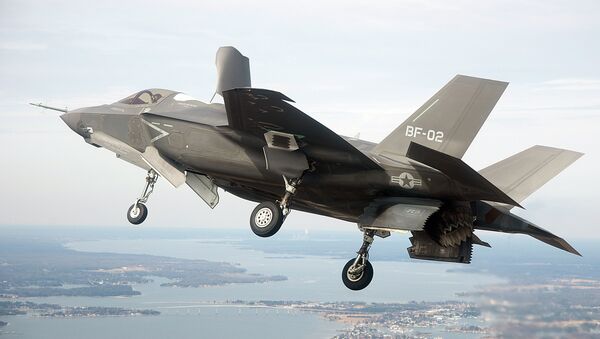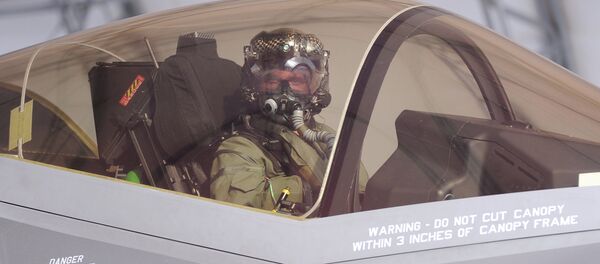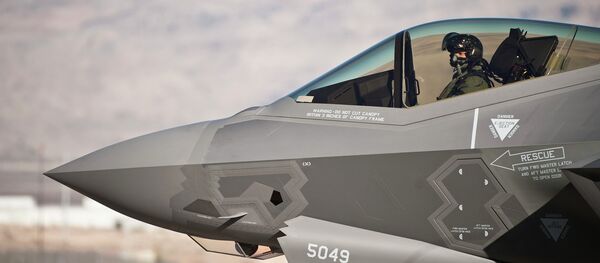In development since 2001, the procurement costs for the F-35 are expected to top $400 million, according to the Government Accountability Office. Once projected maintenance costs are factored in, US taxpayers will be on the hook for an estimated $1-1.45 trillion.
— Dave Gilson (@daudig) March 17, 2015
And while the taxpayer dollars are getting funnelled to the fighter jet's manufacturers, they are funnelling some of those dollars right back to the politicians that approve the program, in the form of campaign contributions, according to OpenSecrets.org.
The four contractors involved in the F-35 project — United Technologies, Lockheed Martin, Northrop Grumman, and BAE Systems — made record contributions in 2014. Lockheed and Northrop laid out the most cash, shelling out a total of $4.1 million each, with UT chipping in $2.1 million and BAE coughing up $1.4 million.
Though the cash gets splashed around on both sides of the aisle, it does lean a bit more heavily towards Republicans. More to the point though, donations find their way to the campaigns of politicians sitting on powerful committees that decide the fate of the F-35 program and its funding.
Members of the The House Armed Services Committee received $1.7 million, those on the House Appropriations Committee got $1.3 million and members of the Senate Appropriations Committees received $658,499.
Sen. Dick Durbin (D-Ill.), the ranking member of the Senate Appropriations Committee on Defense was the only member of Congress to appear on all four contractors' top five recipients lists.
In 2016 Budget Proposals, F-35 is Unscathed
Perhaps it comes as no surprise then that the recent Congressional discussion of the F-35's fate within next year's budget resulted in no cuts whatsoever to what is now the most expensive military equipment program in US history.
Amid some verbal sparring last week, the House Armed Services Committee rejected the proposal of Rep. Jackie Speier (D-Calif.) to cut $589 million from the $1 billion funding increase included in the 2016 National Defense Authorization Act (NDAA).
This would have cut six fighters from the program. Speier cited some of the many issues that have plagued the fighter: engine troubles, software problems, and reliability concerns to name just a few.
But Rep. Mike Turner, an Ohio Republican, shot back that Speier had missed a hearing on the fighter and a trip to learn about the program, and also blamed her criticism on her "misreading of the GAO report.” She, in turn, thanked him for his "obnoxious comments."
— Valerie Insinna (@ValerieInsinna) April 29, 2015
Overall, the House cleared the way for $3 billion more for weapons programs than the Pentagon had even asked for, in what Politico called "a clear win for defense contractors."
— TCS (@taxpayers) February 5, 2015





